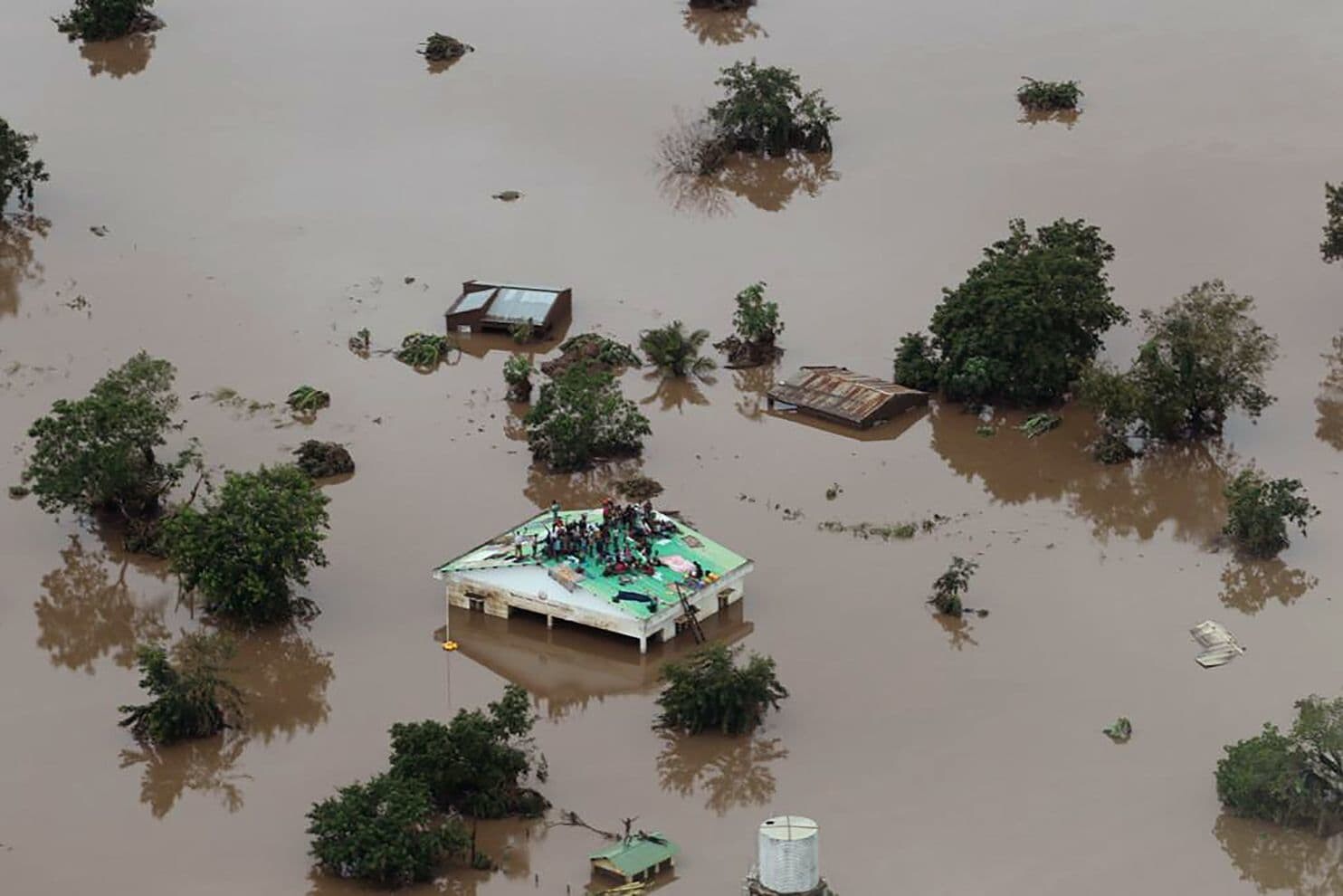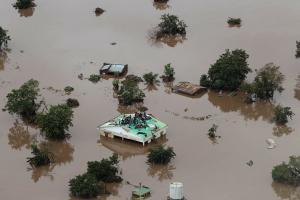
The cylone which hit Mozambique and Zimbabwe has left hundreds of people dead and thousands others missing or displaced.
Cyclone Idai hit Zimbabwe and Mozambique between 14 and 16 March. The powerful cyclone was predicted by the South African Weather Service on 11 March.

Hundreds of people remain trapped in the cyclone-hit areas, while some are still unaccounted for.
Mozambican president, Filipe Nyusi, has said that the death toll could be as high as 1000.
Zimbabwe’s eastern Chimanimani district and Mozambique’s Beira are among the worst hit. According to the United Nations, nearly 10,000 people were affected by the cyclone in Zimbabwe.
Mozambique and Zimbabwe are vulnerable to flooding during the rainy season, with previous disasters having caused fatalities and left people homeless. The number of cyclones and extreme floods have been increasing in Southern Africa due to the change in weather patterns likely caused by climate change.
Meanwhile, Amnesty International has called on foreign governments, including regional leaders, to ramp up efforts and resources available for rescue efforts.
The organization said the focus should be on saving people who are still trapped in the affected areas and ensuring that humanitarian assistance is provided to so that people’s basic needs are met and their human rights are protected.
With the cyclone expected to move further west, Amnesty said authorities should also aim to mitigate further loss of life by devising early-warning mechanisms and other risk-reduction strategies.
“The Southern African Development Community and the international community must provide the necessary resources to aid rescue efforts in the countries hit by Cyclone Idai in order to save lives and provide relief for those who have lost their homes and livelihoods,” said Muleya Mwananyanda, Deputy Regional Director for Southern Africa.
“As the effects of climate change intensify, these extreme weather conditions can be expected to revisit us more frequently. The devastation wrought by Cyclone Idai is yet another wake-up call for the world to put in place ambitious climate change mitigation measures,” said Muleya Mwananyanda.
“Regional leaders and governments of wealthier countries must support effective early-warning systems, disaster preparedness and climate change adaptation strategies to save lives and protect human rights.”
Under international human rights law, the primary responsibility to provide assistance and protection to the victims of the disaster lies with the governments of the affected countries. However, other countries also have the obligation to provide assistance through international cooperation if this is needed to protect human rights.














